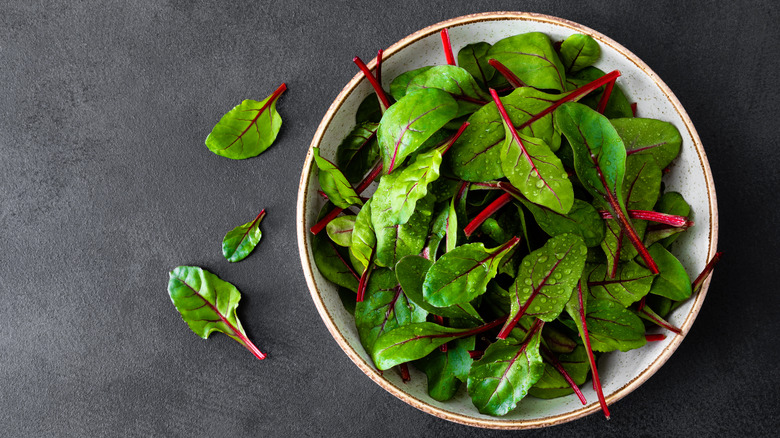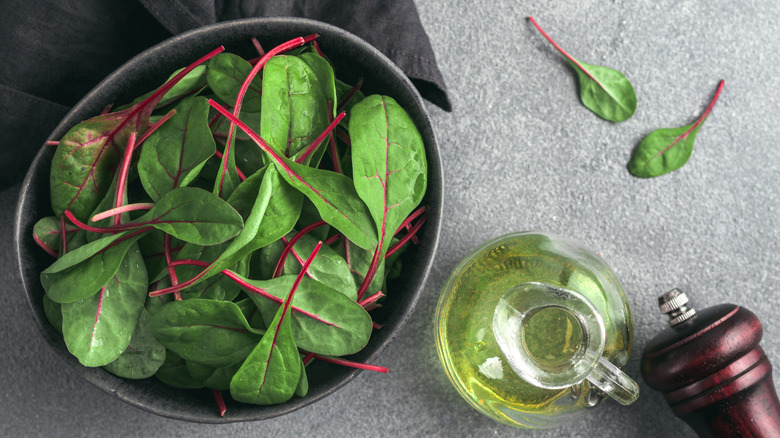Why Baby Chard Is Better Suited For Salads
When it comes to adding leafy greens to your salads, chard is an excellent choice. Not only is it packed with vitamins and minerals, but it also has a delicious, slightly earthy flavor that pairs well with a variety of dressings and toppings. However, not all chard is created equal when it comes to salads. Baby chard, in particular, is a superior option for a few key reasons.
Baby chard is a visually appealing thanks to its smaller, easy-to-eat leaves and green hue, which adds a pop of color and texture to your salads. Baby chard also has a mild, delicate flavor. This makes it a great choice for salads that feature other bold ingredients, as it won't overpower the other flavors. Mature chard, on the other hand, can have a slightly bitter taste, which may not be to everyone's liking.
But the looks and mild flavor of baby chard are far from the only reasons it is the better salad option compared to mature leaves.
Baby chard is less fibrous
The primary reason it is better to use baby chard for salads is because it is much more tender than mature chard. This means that it can be eaten raw and doesn't require any cooking. Simply rinse the leaves, dry them off, and chop or tear them into bite-sized pieces to add a delicate texture without any toughness or fibrousness.
Mature chard can be rather coarse and rigid, especially if it's not cooked properly. While it can still be used in salads, it's best to chop it finely and massage it with some olive oil or lemon juice to help break down the fibers.
So try adding baby chard to your favorite salads for some leafy green goodness. Its mild, succulent leaves are delicious in any salad while mature chard is better cooked. Pick some up the next time you're at the grocery store try it for yourself.

